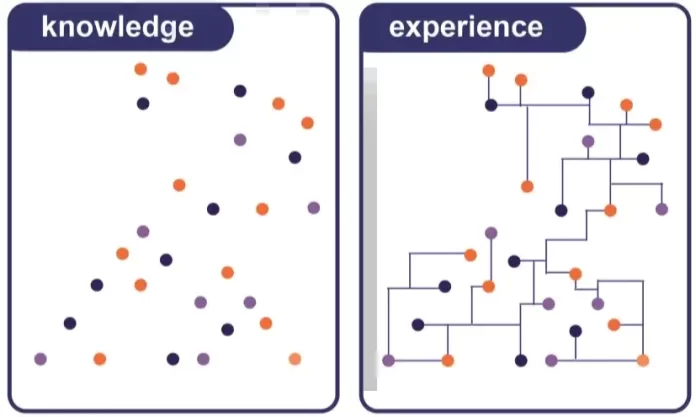Experience can be defined as the knowledge, skills, and expertise that a person has acquired through practical application and observation. Unlike knowledge, which can be acquired through education and training, experience is gained through real-world situations and challenges. Experience teaches us how to handle difficult situations, make quick decisions, and adapt to changing circumstances.
Here are a few reasons why experience takes higher precedence over knowledge:
- Experience Provides Context: Experience provides context and perspective that cannot be gained through academic knowledge alone. For example, a software engineer with a few years of experience has faced various technical issues, and seen how issues have been solved in the past. When faced with a similar problem, they can draw upon their past experiences to find solutions quickly.
- Experience Builds Confidence: Confidence is an essential trait for any successful team member. Experienced team members have faced challenges before and know they have the ability to overcome them. This confidence helps them to take calculated risks, make tough decisions, and lead with authority. For example, a senior project manager who has successfully led several high-profile projects is more likely to have the confidence to lead a new team effectively.
- Experience Fosters Creativity: Experience fosters creativity because it allows team members to think outside the box. Experienced team members have seen how problems have been solved in the past and can use that knowledge to create new and innovative solutions. For example, a marketing manager with years of experience in the industry has seen various marketing campaigns succeed and fail. This experience allows them to come up with creative solutions for their current marketing campaigns.
So, what role does experience play in corporate teams?
- Mentoring and Guidance: Experienced team members can act as mentors and guides for less experienced colleagues. They can share their knowledge, provide support, and help to develop the skills of their team members. For example, a senior sales executive can mentor a new salesperson by sharing their sales techniques and strategies.
- Valuable Insights and Perspectives: Experienced team members can provide valuable insights and perspectives that can help the team make better decisions and avoid costly mistakes. For example, a finance director with years of experience in the industry can provide valuable insights into financial analysis and management, enabling the team to make better financial decisions.
In conclusion, academic knowledge and technical skills are essential, but experience takes higher precedence when it comes to building successful corporate teams.
Managers should look for team members with diverse experiences and backgrounds to create a well-rounded and effective team.
Additionally, experienced team members should be encouraged to act as mentors and share their knowledge with less experienced colleagues. By doing so, they can create a culture of continuous learning and growth that will benefit the team and the organization as a whole.






























